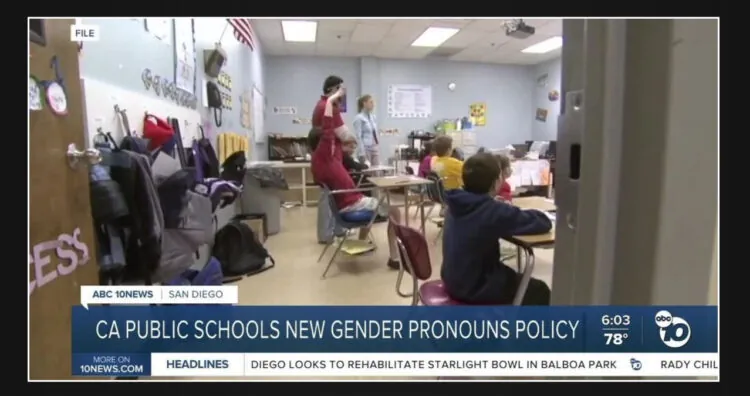Where should parents draw the line when it comes to making decisions about their child’s education? This is a question that often arises in the context of schools.
Scott Davison, whose son attends Sage Creek High School in Carlsbad, believes that if a child has decided to change their name or pronouns, or to use a different bathroom or locker room at school, it may indicate a potential mental health concern.
Davison is becoming increasingly concerned about a recently passed state law that has the potential to restrict his ability to supervise his children.
The Safety Act, signed into law in July, was introduced by San Diego Assembly Member Chris Ward. This law prohibits school districts from mandating that staff disclose a student’s gender or pronoun change to others.
Trans teenager Evan Johnson expressed gratitude for the teachers who provided them with the opportunity to explore their name and pronouns. “I appreciated having teachers who were open to giving me that space,” Johnson shared.
Johnson, a recent graduate from Poway High School, shared that their gender transition was a challenging journey. They emphasized the significance of undergoing the coming out process outside of their home environment.
“The thought of having my time and power taken away is incredibly disheartening,” expressed Blu London, a transgender teenager. “It saddens me to think that there are young individuals who might not have the opportunity to fully embrace and celebrate their coming out journey.”
In the past year, several school districts have implemented new policies regarding students who are transitioning genders.
In May, the Lakeside Union took a significant step by introducing a parent’s bill of rights. This new policy includes a provision that requires staff members to inform parents about any actions or decisions related to sexual transitioning. It is worth noting that the Escondido School District also faces a federal lawsuit due to a policy that bears similarities to the “Safety Act.”
The impact of the new law on these cases remains unclear, leaving the question of parental discretion unanswered.


